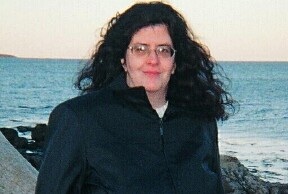Bewildering Stories Interviews
Roberta Branca
Bewildering Stories is a big operation, as our Information page shows. Our Associate Editors are an elite group. Their critiques of submissions not only make Bewildering Stories possible, they are essential to making it the best it can be. The Associate Editors necessarily work anonymously, “behind the scenes.” Now we express our appreciation to them with a series of personal interviews.

|
How did you become involved with Bewildering Stories and when?
My first submission, “Shendark Leaves the Zone,” was accepted in May, 2010. Through the course of the editing process, Don Webb asked me if I would like to review-read from time to time.
I was just reviewing my email archives, and it seems that I communicated back and forth with Don and Bill Bowler to make sure I understood the commitment and what was expected. It was a nice surprise to be invited to do this, and an honor, given the quality of the publication.
Aside from critiquing submissions, what do you do in your spare time?
Aside from my writing, I read a lot, I go to the movies, keep up with household chores, etc. I belong to a writer’s group in my area.
Your work as an Associate Editor is very valuable to Bewildering Stories; it puts you on the “front line,” so to speak. What kinds of stories do we send you to read? What are they like?
BwS sends me short stories, usually up to about 7,500 words although I’ve done a second review of a couple pieces that were serial length. Most of the stories are of high quality, all involving science fiction or fantasy or slipstream.
What do you like most about review reading? Is there anything you’d like to tell authors to do or not do?
I like the fact that I can gain insight into how other writers write before something is published. I think my own writing skills have improved by analyzing other people’s writing.
I would like to tell authors: Show, don’t tell. Do proofread and tighten up the grammar. Don’t make the beginning so obscure or mysterious that the reader can’t anchor themselves to the main character and the setting.
Write every day, even if what you write isn’t publishable yet. Embrace the rewrite process; don’t just dash off a first draft and send it out. Editors can spot that immediately.
Who are your favorite authors or favorite works? Why do you like them?
My favorite authors probably seem at first glance to be worlds apart: Stephen King and Toni Morrison. What they have in common is the ability to craft language into storytelling. I am an avid Harry Potter fan, and I am looking forward to J. K. Rowling’s next book or series. My favorite novel is To Kill a Mockingbird.
Do you read a lot of sci-fi and fantasy, or more mainstream literature?
I read about equal amounts of both. I grew away from sci-fi and fantasy for a long time, but I’ve always read psychological horror like Stephen King. I like mysteries a lot. I started becoming attracted again to fantasy when I fell in love with the Harry Potter series.
How do you think literature might be used in education, especially in the age of the Internet?
I think young people should be encouraged to publish their own fiction in a blog or social media format. There are wonderful sites, like Smashwords, where they can publish online at no cost.
Also, teenagers’ attraction to digital media should be encouraged by assigning them literature that can be downloaded from the public domain, such as Gutenberg Project or any of the classics collections available from the mainstream eBook vendors.
I think writers need other writers to commiserate with and learn from. Join a writer’s group, or form one of your own; look for inexpensive regional conferences and attend authors’ speaking engagements.
Some cities here in the Northeast hold book festivals where a large number of successful authors will give lectures about their own writing process.
What kind of writing do you do?
You know, when I decided to start writing fiction many years ago I tried to write mainstream, literary stories. I thought I’d outgrown the sci-fi and fantasy that I read as a young adult. But most of my work has at least a slipstream element, and I have part of a Nano project that is hard-core sci-fi. I am working on revising a novel that’s mainstream mystery.
What do you do in real life?
I am a librarian at a for-profit college. I teach library research instruction and handle reference duties.
For me, the best part of the job is teaching people one on one. I like to help people learn a new skill, to see that “aha” moment when they are able to find exactly what they are looking for in their research.
The hardest part of the job is the down time, when there are no questions at the reference desk and no hard and fast deadlines for ongoing projects. It’s easy to get distracted.
What advice would you give to a young person going into your line of work?
I would advise them to start working in a library in a paraprofessional capacity before and during graduate school. Job titles they could apply for in this capacity might be library aide, library assistant, library technician, and library page.
Also, learn and keep up with new media skills like web page design, social media, even multi-media production; learn standard office applications well enough to use them professionally and demonstrate them to other people.
Where do you live, if you don’t mind saying, and where might you like to live?
I live on the seacoast of New Hampshire. I have also lived in Massachusetts, Iowa, Florida, and New York. I’d love to live overseas, particularly London or any place in Ireland.
Copyright © 2012 by
Roberta Branca
and Bewildering Stories

